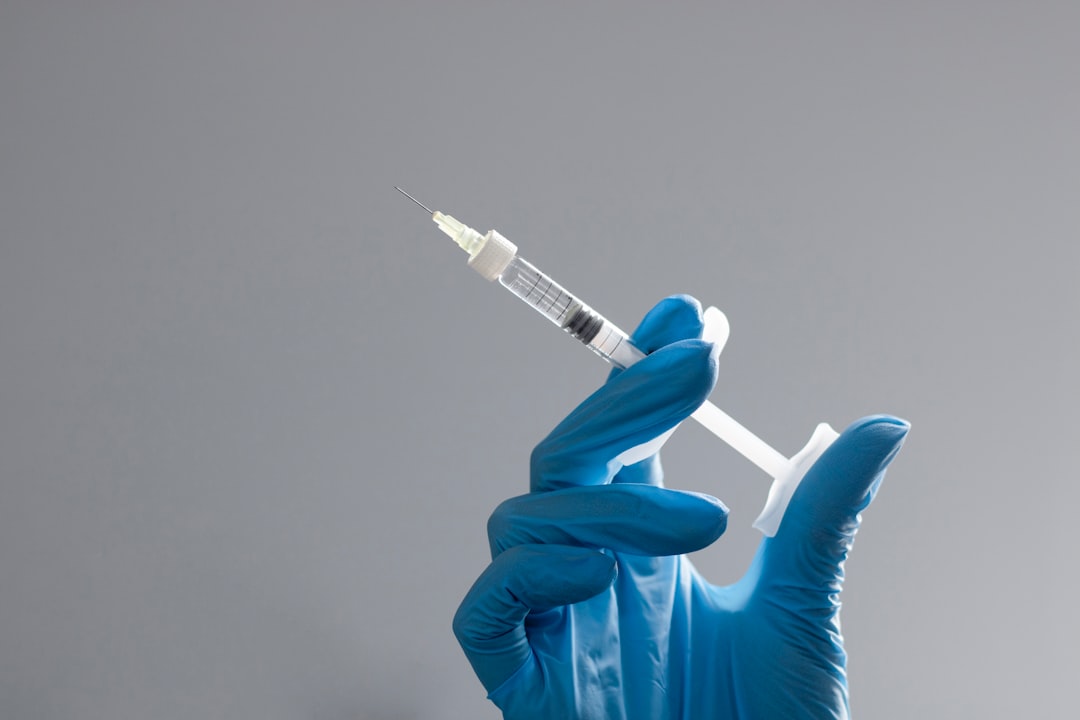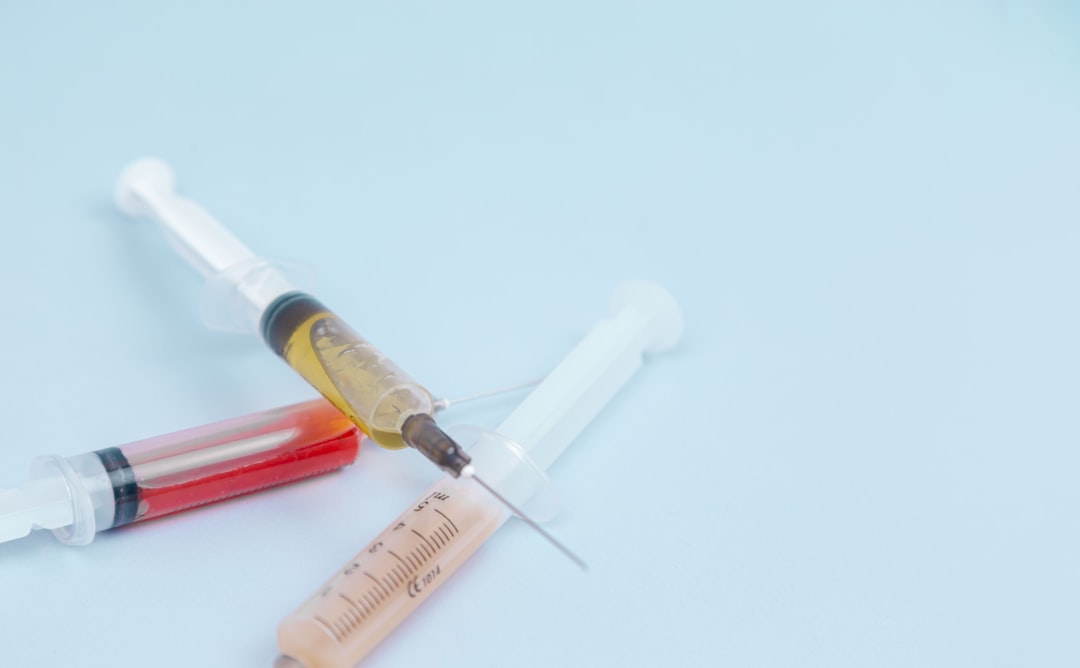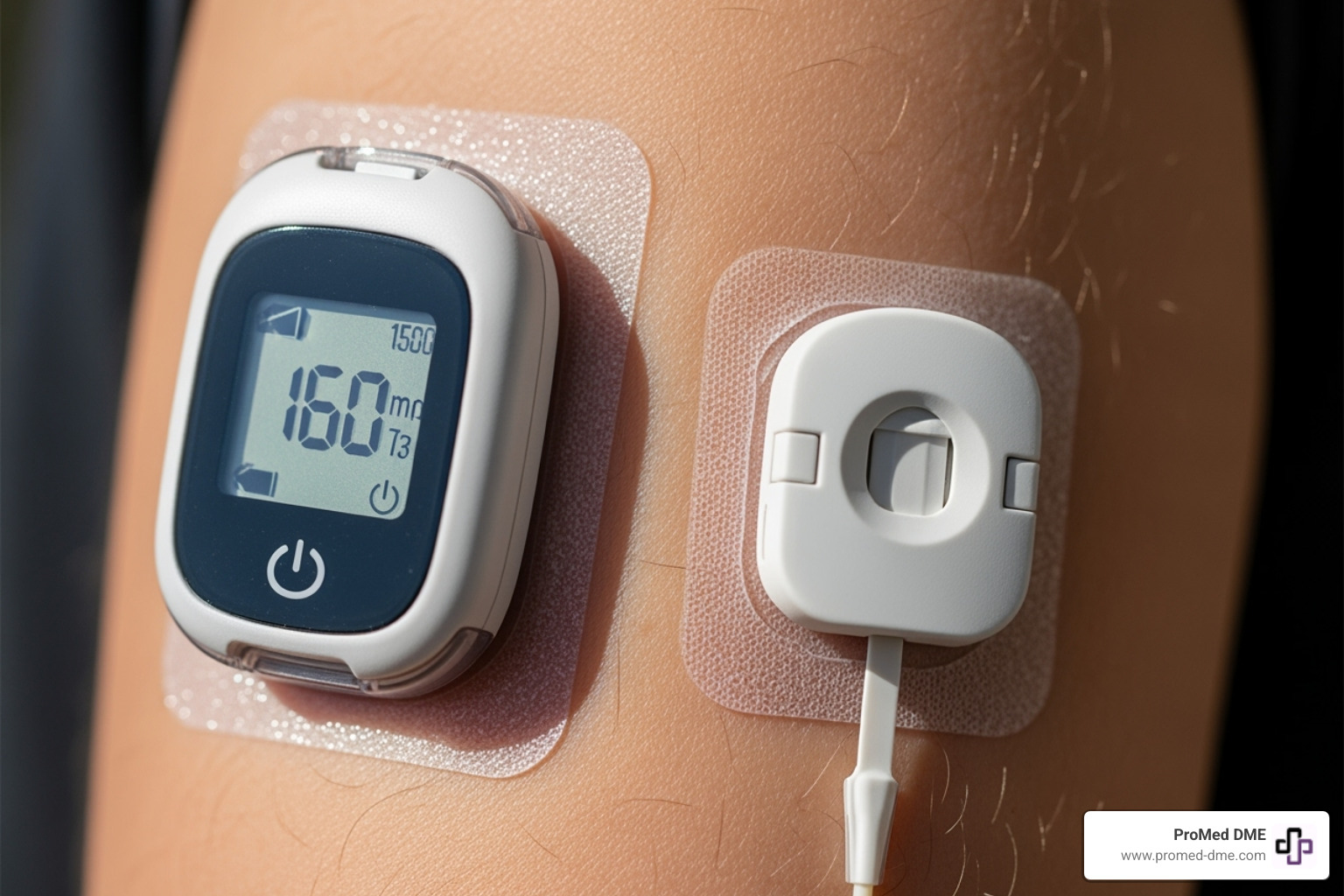Everything You Need to Know About Low Glucose Causes

Have you ever felt a sudden sense of fatigue, confusion or experienced unexplained cold sweats? You could be dealing with a condition known as hypoglycemia, characterized by low blood glucose levels. It's often associated with diabetes, but did you know that it can affect anyone? Not only does this condition impact your daily physical capabilities, but it can also lead to emotional distress. It's crucial to understand the cause of low glucose levels to manage it effectively and prevent its occurrence.
We at ProMed DME aim to empower our clients with knowledge and resources to better manage their health. One of the areas where awareness can make a significant difference is understanding the causes of low glucose levels. Sometimes, the cause could be as simple as skipping meals or not consuming enough carbohydrates. But in other cases, it could be due to taking too much insulin, excessive alcohol consumption, certain medications, or even critical illnesses.

Here is a quick rundown of some of the common causes of low glucose levels:
- Taking too much insulin or diabetes medication
- Skipping meals or not consuming enough carbohydrates
- Excessive alcohol consumption
- Certain medications
- Critical illnesses
- Physical overexertion without adjusting medication or food intake
Understanding these causes is the first step towards effective management of your blood glucose levels. Knowing what triggers your low glucose levels can help you anticipate, prevent, and deal with hypoglycemia more effectively. In the coming sections, we will delve deeper into these causes and share preventive measures to help you manage this condition better.
Understanding Blood Glucose
Before we delve into the cause of low glucose levels, it's important to have a clear understanding of what blood glucose is and the role it plays in our body.
What is Blood Glucose?
Blood glucose, also known as blood sugar, is the primary sugar found in your bloodstream. It is derived from the food we eat and serves as the main source of energy for the body. As we consume food, our body breaks it down into glucose and releases it into our bloodstream. This prompts the pancreas to release insulin, a hormone that enables glucose to enter our cells and be used for energy.
The Role of Blood Glucose in the Body
Maintaining the right balance of glucose in our blood is crucial for our overall health. When operating correctly, our bodies naturally regulate blood glucose levels to ensure we have just enough available to meet our energy needs. When we consume food, our bodies convert the carbohydrates into glucose, providing the necessary energy to fuel our cells. In individuals with diabetes, however, the body either doesn't produce enough insulin or can't use insulin effectively, resulting in too much glucose remaining in the blood.
Normal Blood Glucose Levels
What constitutes a 'normal' blood glucose level can vary from person to person. However, for most people without diabetes, blood glucose levels should ideally be between 70 mg/dL and 99 mg/dL when fasting, and less than 140 mg/dL two hours after eating.
For individuals with diabetes, the target range may be different and should be determined in consultation with a healthcare provider. At ProMed DME, we provide resources and support to help individuals understand and manage their glucose levels effectively.
Understanding your blood glucose levels and how they function is the first step in recognizing and managing low glucose levels. In the following sections, we will explore the cause of low glucose levels and provide guidance on how to prevent and manage this condition.
What is Hypoglycemia?
Hypoglycemia, commonly known as low blood sugar, is a condition where the level of glucose in your blood drops below what is considered healthy. For many people, especially those with diabetes, a blood glucose reading lower than 70 milligrams per deciliter (mg/dL) or 3.9 millimoles per liter (mmol/L) is generally an indicator of hypoglycemia. However, this number might be different for different individuals, so it's important to consult with your healthcare provider to understand what blood glucose level is considered low for you personally.
Symptoms of Hypoglycemia
The symptoms of hypoglycemia can vary from one person to another, and in many cases, they come on quickly. Some of the common signs to watch out for include:
- Looking pale
- Shakiness
- Sweating
- Headache
- Hunger or nausea
- An irregular or fast heartbeat
- Fatigue
- Irritability or anxiety
- Difficulty concentrating
- Dizziness or lightheadedness
- Tingling or numbness of the lips, tongue, or cheek
As hypoglycemia worsens, more severe symptoms may appear such as confusion, loss of coordination, slurred speech, blurry or tunnel vision, and even nightmares if you are asleep. Severe hypoglycemia may cause unresponsiveness (loss of consciousness) and seizures.
The Dangers of Severe Hypoglycemia
Severe hypoglycemia is a serious medical condition that requires immediate attention. If left untreated, it can lead to severe complications such as loss of consciousness, seizures, and in extreme cases, even death. Repeated episodes of hypoglycemia can also lead to long-term health problems.
If you have diabetes and your hypoglycemia symptoms are not responding to treatment, such as drinking juice or eating candy, you should seek medical help immediately. Similarly, if you do not have diabetes but are experiencing symptoms that might be related to hypoglycemia, you should consult with a healthcare provider as soon as possible.
At ProMed DME, we believe that understanding your condition is essential for managing it effectively. In the next section, we will delve deeper into the cause of low glucose levels and how to prevent and manage them.
Causes of Low Glucose Levels
Understanding the cause of low glucose levels is crucial for managing and preventing hypoglycemia. Several factors can influence your blood glucose levels, from the medications you take to your lifestyle choices and overall health.
Medications and Hypoglycemia
Some medications used to treat diabetes can lead to low blood glucose levels. These include insulin and certain types of diabetes pills, such as sulfonylureas and meglitinides. These medications work by helping your pancreas release more insulin into your blood, which can sometimes cause your blood glucose to drop too low. It's important to take these medications as prescribed and to monitor your blood glucose levels regularly, especially if you're taking any medication that can lower your blood glucose.
The Impact of Diet on Blood Glucose Levels
Your diet plays a significant role in managing your blood glucose levels. Carbohydrates are a primary source of glucose. If you do not consume enough carbohydrates, skip meals, or go extended periods without eating, your blood glucose levels may drop. It's vital to maintain a regular eating schedule and include enough carbohydrates in your meals and snacks to prevent low blood glucose levels.
Physical Activity and Blood Glucose Levels
Physical activity can lower your blood glucose levels. While exercise is beneficial for overall health, if you have diabetes and you're taking insulin or diabetes medications, you might need to adjust your medication dosage or consume more carbohydrates before exercising to prevent hypoglycemia. Regular monitoring of your blood glucose levels before, during, and after physical activity can help you manage your blood glucose effectively.
Alcohol Consumption and Blood Glucose Levels
Consuming alcohol, especially on an empty stomach or in large amounts, can cause your blood glucose to drop. Alcohol interferes with your liver's ability to produce glucose, leading to hypoglycemia. It's recommended to consume alcohol in moderation and always eat something when drinking to prevent low blood glucose levels.
Illness and Blood Glucose Levels
When you're ill, you may not be able to eat as much or keep food down, which can lower blood glucose. During sickness, it's crucial to continue monitoring your blood glucose levels and contact your healthcare provider if you notice significant changes.
At ProMed DME, we provide reliable Continuous Glucose Monitoring (CGM) devices like the Dexcom G6 and Dexcom G7, which can alert you when your blood glucose is too low. These devices allow you to monitor your blood glucose levels in real-time, helping you manage your blood glucose more effectively. Understanding the cause of low glucose levels and how to prevent them is not just about treatment, but also about preventing blood sugar from dropping too low.
Diagnosing Hypoglycemia
After understanding the cause of low glucose levels and recognizing the symptoms, the next step is to confirm the diagnosis. This is done primarily through blood glucose testing and understanding the phenomenon of hypoglycemia unawareness.
Blood Glucose Testing
Blood glucose testing is a vital tool in diagnosing hypoglycemia. This test measures the amount of sugar in your blood at the time of testing. For people with diabetes, daily testing is often required to ensure blood glucose levels remain within a healthy range.
For individuals with diabetes, a blood glucose level lower than 70 mg/dL often indicates hypoglycemia. For those without diabetes, hypoglycemia is generally diagnosed when blood glucose levels drop below 55 mg/dL. However, these ranges can vary, and consult with your healthcare provider for your specific target range.
At ProMed DME, we offer reliable Continuous Glucose Monitoring (CGM) devices like the Dexcom G6 and Dexcom G7. These devices measure blood sugar every few minutes using a sensor inserted under the skin. If your blood sugar levels are dropping too low, these CGM models will alert you with an alarm, allowing for timely intervention.
Hypoglycemia Unawareness
Hypoglycemia unawareness is a condition where the body and brain no longer produce signs and symptoms that warn of low blood sugar, such as shakiness or irregular heartbeats. This can increase the risk of severe, life-threatening hypoglycemia.
This condition usually happens when you've had multiple episodes of hypoglycemia, and your body becomes accustomed to low blood sugar levels. It can be particularly dangerous because it can lead to severe hypoglycemic episodes without any preceding symptoms.
If you have been diagnosed with hypoglycemia unawareness, it's crucial to monitor your blood sugar levels closely. ProMed's CGM devices can be a valuable tool in managing this condition, providing real-time updates on your blood sugar levels and alerting you when your blood sugar is too low.
In such cases, your healthcare provider might modify your treatment, raise your blood sugar level goals, and recommend blood glucose awareness training.
Diagnosing hypoglycemia promptly is crucial in preventing complications. Understanding your body's signals and using the right tools to monitor your blood glucose levels are vital steps in managing this condition.
Treating Low Blood Glucose Levels
When your blood glucose levels drop too low, it's crucial to act promptly. At ProMed DME, we want to ensure you have the knowledge and tools to manage these situations effectively.
The 15-15 Rule
If you notice symptoms of hypoglycemia and your blood sugar levels fall between 55-69 mg/dL, the 15-15 rule is a handy guide. This rule involves consuming 15 grams of carbohydrates and then checking your blood sugar after 15 minutes. If it's still below your target range, repeat the process.
Carbohydrate sources could include: - 4 ounces (½ cup) of juice or regular soda (not diet) - 1 tablespoon of sugar, honey, or syrup - Few pieces of hard candies, jellybeans, or gumdrops (check the food label for how much to eat) - 3-4 glucose tablets or 1 dose of glucose gel (follow instructions)
Remember to avoid foods that contain fats along with carbs, like chocolate, as they can slow the absorption of glucose and should not be used to treat hypoglycemia urgently.
The Role of Glucagon in Treating Hypoglycemia
For severe hypoglycemia, where your blood glucose falls below 55 mg/dL, the 15-15 rule won't be adequate. In such cases, your body needs the help of glucagon, a hormone produced in the pancreas that stimulates your liver to release stored glucose into your bloodstream.
Glucagon is available by prescription and is either injected or administered as a nasal puff. Talk to your healthcare provider about whether you should have a glucagon product and how to use it. Train the people you are frequently in contact with, like your family, friends, and coworkers, on how to give you a glucagon injection in case of severe hypoglycemia.
Importance of Medical IDs for People with Diabetes
It's critical for people, especially those using insulin, to carry a medical ID at all times. A medical ID can inform others about your condition in case of an emergency, such as severe hypoglycemia where you might be unable to communicate effectively.
If you're unconscious and glucagon isn't available or someone doesn't know how to administer it, immediate medical assistance is required. Don't hesitate to call 911 in such situations.
Understanding these treatment methods and being prepared can help you manage low blood glucose levels effectively. Discuss these strategies with your healthcare provider and ensure you have the necessary resources available. Proper management of your blood glucose levels is critical for your overall health and wellbeing.
Preventing Low Blood Glucose Levels
Preventing episodes of hypoglycemia is crucial in managing diabetes and maintaining optimal health. This involves a combination of regular blood glucose monitoring, adherence to a diabetes management plan, and the use of modern technology such as continuous glucose monitors.
Regular Blood Glucose Monitoring
Understanding the cause of low glucose levels begins with regular blood glucose monitoring. This is the cornerstone of diabetes management. Being aware of your glucose levels can help you avoid both high and low blood sugar. You might need to check your blood sugar more often if you frequently experience low blood sugar or have had diabetes for more than 5-10 years. This becomes especially important before activities such as driving or intense physical exercise.
At ProMed DME, we understand the importance of regular blood glucose monitoring and offer a range of tools to help you stay in control of your health. You can learn more about these on our resources page.
Following a Diabetes Management Plan
Managing blood sugar levels involves a careful balance of diet, exercise, and medication. Consuming regular meals and not skipping them can help you avoid nighttime low blood sugar. Incorporating more fiber in your diet and not drinking alcohol without eating can also help in managing your blood sugar levels.
Exercise is another key factor. Being physically active can help regulate your blood sugar levels, but it's important to balance your activity with your insulin dose and carbohydrate intake. Finally, taking medication as prescribed by your healthcare provider is crucial. This might include insulin or other diabetes medicines, and the timing of these can significantly impact your blood sugar levels.
The Role of Continuous Glucose Monitors
Modern technology, like continuous glucose monitors (CGMs), plays a significant role in preventing low blood glucose levels. CGMs provide real-time updates on your blood glucose levels, allowing you to see if you're trending high or low. This immediate feedback helps you make more informed decisions about food, exercise, and medication, leading to better overall diabetes management.
At ProMed DME, we provide top-of-the-line CGM systems like the Dexcom G6 and Dexcom G7, known for their exceptional accuracy. These devices can alert you when your blood sugar is too low or too high, helping you take preventative measures to avoid potentially life-threatening complications.
By combining regular blood glucose monitoring, a balanced diabetes management plan, and the use of CGM devices, you can effectively prevent low blood glucose levels. This not only minimizes the effects of low blood sugar on your daily life but also helps you live a more fulfilling and active life with diabetes. If you have any questions or concerns, don't hesitate to reach out to us at ProMed DME. We're here for you every step of the way.
Conclusion
Importance of Understanding and Managing Blood Glucose Levels
Understanding the cause of low glucose levels is essential for anyone, especially those diagnosed with diabetes or who experience hypoglycemia. It's critical to remember that managing your blood glucose levels is a continuous process that involves constant monitoring and adjustments based on factors such as diet, physical activity, and medication.
At ProMed DME, we believe in empowering you with information and tools to manage your health effectively. Modern technology like real-time blood glucose monitoring devices, such as the Dexcom G6 and Dexcom G7, can be game-changers in this journey. They provide real-time updates on your blood glucose levels, alerting you if they're trending too high or too low. This immediate feedback can help you make informed decisions about food, exercise, and medication, leading to better overall diabetes management.
It's also essential to maintain a balanced diet, engage in regular physical activity, and take prescribed medications as directed. Regular check-ups with your healthcare provider are also crucial to ensure your treatment plan is working and to make necessary adjustments.
When to Consult a Healthcare Provider
If you frequently experience symptoms of low blood sugar or if you're unable to manage your glucose levels effectively despite your best efforts, it's time to consult with a healthcare provider. Make sure to keep a record of your blood glucose readings, insulin doses, meals, and physical activities to provide your healthcare provider with a comprehensive view of your situation. This information can help them adjust your treatment plan and provide you with strategies to prevent low blood glucose episodes.
You're not alone in this journey. Our team at ProMed DME is committed to providing you with the resources, tools, and support you need to manage your blood glucose levels effectively. To explore our range of medical supplies or to ask any questions, don't hesitate to reach out to us at ProMed DME. We're here for you every step of the way.
For more information on blood glucose monitoring and managing low blood sugar, we recommend visiting our resources page or checking out our detailed guides on our continuous glucose monitoring systems.
Related Resources & Articles
Stay informed with our informative blog posts.
Discover the ProMed Advantage
& Try Our Products
We offer free shipping and legendary customer service to ensure you receive the
best DME products for your needs.



